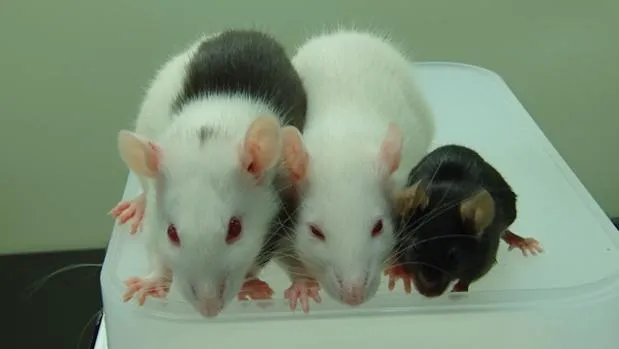They achieve for the first time a rat pancreas cultivated in mice that can help reverse diabetes.
A study confirms the viability of organ cultivation of one species in another's body to be used in transplants.
Regenerative medicine has returned to a twist when growing tissues in animals and transplanting them later to others with diabetes to treat the disease.Specifically, researchers at the Faculty of Medicine at Stanford University (USA) and the Institute of Medical Sciences of the University of Tokyo (Japan) have made pancreatic islets (groups of cells that are responsible for producing hormonesAs insulin) of mouse, cultivated in rats and subsequently transplanted in diabetic mice, they can normally work for prolonged periods of time.
Published in "Nature", the study demonstrates how the organs of a species can grow within the body of another, a method that could one day help the production of human tissues and organs for transplants.
When medication fails to stabilize type I diabetes, characterized by the loss of insulin producing cells, pancreatic islet transplant can offer hope to patients.However, it is difficult to find an adequate donor, a problem that diabetics share with the thousands of patients who are waiting for a transplant of any kind.
The Hiromitsu Nakauchi team implemented pluripotent mouse cells, which can become any body cell, rat embryos.
To carry out the trial, the Hiromitsu Nakauchi team implemented pluripotent mouse stem cells, which can become any body cell, rat embryos -pluripotent stem cells or IPS have the potential to make unlimited amounts of cells and tissuesof replacement.The rats had been genetically modified to be unable to develop their own pancreas and, therefore, were forced to ‘trust’ in mouse cells for the development of the organ.and injected pluripotent stem cells of mouse into embryonic rats that could not cultivate their own pancreas.
Once the rats were born and grew, the researchers transplanted the insulin producing cells, which are grouped into groups called islets, of the pancreas grown in rats to the genetically modified mice.These mice, in addition, had been administered a drug to make them develop diabetes.
The results were surprising."We saw that the diabetic mice were able to normalize their blood glucose levels for more than a year after the transplant of only 100 of these islets," says Nakauchi."In addition, receiving animals only needed treatment with immunosuppressive drugs during the five days after transplantation."
hope for diabetics
After 10 months, the researchers eliminated the islets of a subset of the mice for analysis.«We examined them to seek the presence of rat cells, but we discovered that the immune system of the mouse had eliminated them -says Nakauchi-.This is very promising for our hope of transplanting human organs cultivated in animals because it suggests that any polluting animal cell could be eliminated by the patient's immune system after transplantation ».
We saw that diabetic mice were able to normalize their blood glucose levels for more than a year after the transplant of only 100 of these isletsnakauchi
It is important to highlight that the researchers also did not appreciate signs of tumors or other anomalies caused by pluripotent mouse stem cells that formedThe islets.Tumor formation is often a concern when pluripotent stem cells are used in an animal due to the remarkable plasticity of cell development.Researchers believe that the lack of any sign of cancer is probably due to the fact that mouse pluripotent stem cells were guided to generate a pancreas inside the developing rat embryo, instead of persuading to become islet cells in thelaboratory.
not in humans
Genetically generating human organs in large animals could relieve scarcity and free the transplant receptors of the need for a lifetime immunosuppression, researchers say.People who suffer from diabetes could also benefit from this approach.
Diabetes is a metabolic disease in which a person or an animal is unable to manufacture or respond properly to insulin, which is a hormone that allows the body to regulate its blood sugar levels in response to meals or fasting.The disease affects hundreds of millions of people worldwide and their prevalence is increasing.It has been shown that the functional islet transplantation of healthy pancreas is a potentially viable option to treat diabetes in humans, as long as rejection can be avoided.
Researchers are working on similar animal to animal experiments to generate kidneys, livers and lungs.Now, although it is the study is a ‘proof of concept’, its authors recognize that the scenario described here would have to be modified for human application.The organs would have to be generated in animals more compatible with humans, both in evolutionary size and distance, such as sheep, pigs or non -human primates.


